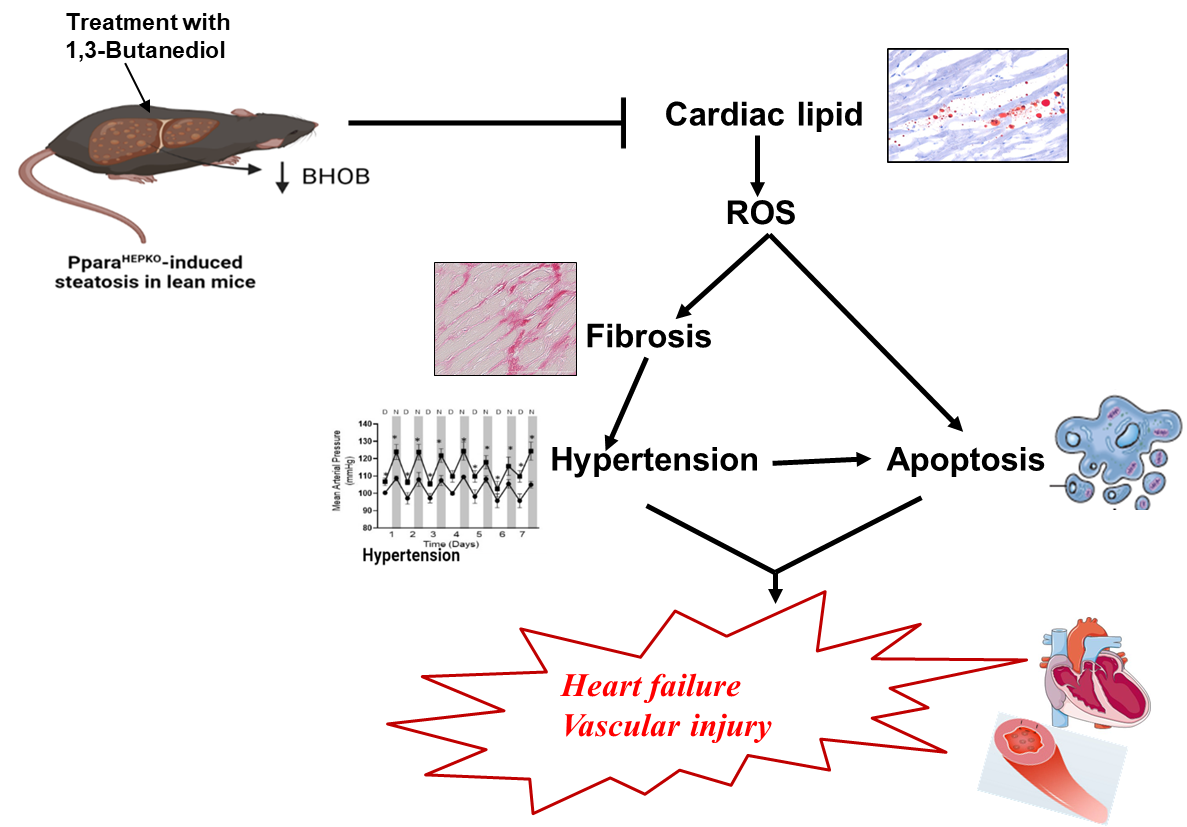Research Spotlight: Dr. Olufunto Badmus
Therapeutic Potential of Beta Hydroxybutyrate in MASLD-induced Cardiovascular Disease
Cardiovascular disease (CVD) remains the leading cause of death in metabolic dysfunction-associated steatotic liver disease (MASLD) patients worldwide. Patients with MASLD have a higher risk of developing hypertension, coronary artery disease, cardiac remodeling, left ventricular diastolic dysfunction, cardiac rhythm disturbances, and ischemic stroke.
Previously, I observed hypertension, systolic and diastolic dysfunction in hepatocyte-specific peroxisome proliferator-activated receptor α knockout mice (PparaHEPKO), a mouse model that exhibits hepatic steatosis independent of obesity and insulin resistance. I also found that circulating beta hydroxybutyrate (BHOB), a liver metabolite which is the major ketone that serves as an alternative fuel source in the body is reduced in this mouse model. My overall research objective is to understand the mechanism by which MASLD drives CVD with the ultimate goal of finding new therapeutic targets for improving CVDs in MASLD patients.
My recent finding is that when plasma BHOB levels are increased by administration of 1,3 butanediol (ketone supplement), this improves arterial blood pressure, exercise tolerance, systolic, diastolic, and vascular functions in MASLD-induced CVD. Interestingly, I found that BHOB improved cardiovascular function in PparaHEPKO mice without alleviating hepatic steatosis suggesting that BHOB improves cardiovascular functions independent of hepatic fat content. Hence, restoring plasma BHOB could be a potential therapeutic treatment for CVDs in MASLD. My research is currently supported by a Postdoctoral Research grant that I obtained from the American Heart Association.

Publications associated with this research:


